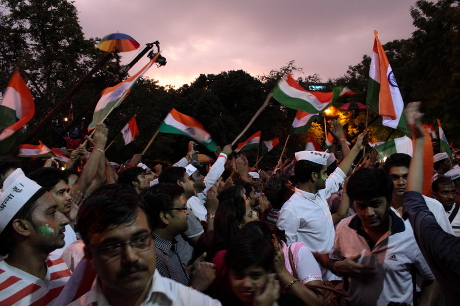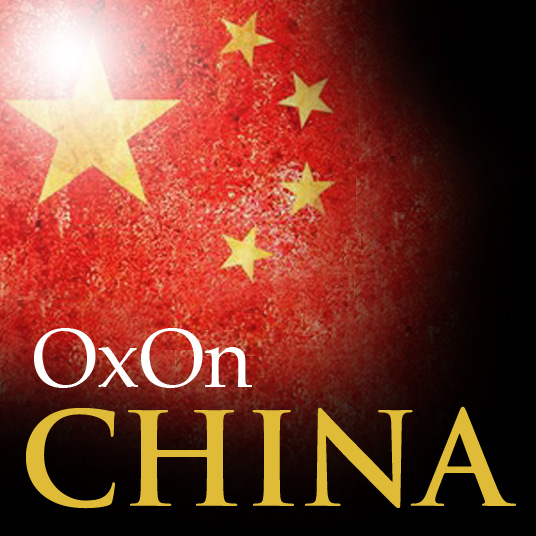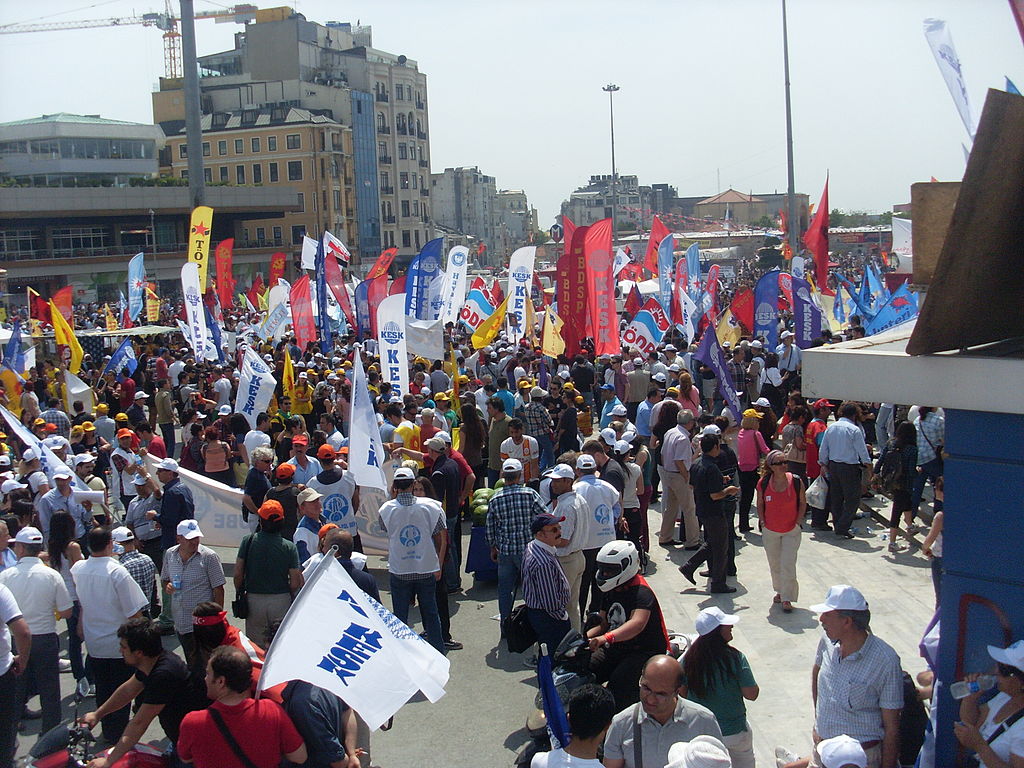
Islam and women in Bangladesh’s constitution
I’ve published a new policy brief with the Foundation for Law, Justice and Society, exploring the vexed issue of women’s rights on the Indian subcontinent, through the prism of the shifting emphasis of secularism and Islam in the Bangladeshi Constitution, and the impact this has on gender equality and family law.
As the world reacts to the conviction of the four men whose gang rape of a young woman in a moving bus in Delhi sparked riots and international condemnation, the policy brief, entitled Islam and Women in the Constitution of Bangladesh, provides a timely insight into the complex interrelation of law, religion and gender politics on the subcontinent.
My report finds that whilst the Constitution has been referred to in only a limited fashion in cases involving the protection and enhancement of women’s rights, notable exceptions include violence against women resulting from religious edicts: “In response to a spate of violence directed at young rural women as part of their sentencing by fatwa … the Supreme Court declared such sentences unconstitutional in 2001.”

The legality of military action in Syria: humanitarian intervention and the responsibility to protect
It now seems fairly clear that the US and the UK are set to take military action in Syria in the coming days in response to the recent chemical attacks there. The UK Prime Minister, UK Foreign Secretary and the UK Secretary of State for Defence have all asserted that any action taken in Syria will be lawful. But on what grounds will military action in Syria be lawful. As is well known, United Nations Charter prohibits the use of force in Art. 2(4), as does customary international law. The UN Charter provides 2 clear exceptions to the prohibition of the use of force: self defence and authorization by the UN Security Council. It is almost certain that there will be no Security Council authorization. In a previous post, I considered the possibility of a (collective) self defence justification for the use of force in response to a use of chemical weapons. The scenario contemplated then is very different from the situation that has emerged, and the language used, at least by the UK, does not hint at a use of force on the basis of national interest. However, President Obama in a CNN interview last week did seem to speak of self defence when he said “there is no doubt that when you start seeing chemical weapons used on a large scale … that starts getting to some core national interests that the United States has, both in terms of us making sure that weapons of mass destruction are not proliferating, as well as needing to protect our allies, our bases in the region.” A justification for force on this basis would sound like preemptive self defence in a way that is very close to the Bush doctrine. I find it hard to see the Obama administration articulating a legal doctrine of preemptive self defence claim in this scenario.

A Reformed Role Model: India is becoming a reluctant promoter of rights
When it comes to human rights, India is a paradoxical case. On the one hand she is praised as a regional standard-bearer, too-often celebrated as ‘the world’s largest democracy’ and applauded for protecting rights when her neighbours do not. On the other hand, the rights community is unanimous in its condemnation of India’s human rights record. Brutal oppression in Kashmir, state mandated ‘encounters’ (unlawful killings) and the violations of tribal land rights are but three of the recurring complaints made of India’s human rights protection record.
The picture is more complicated when it comes to international relations. For many, including Salil Shetty, the Secretary General of Amnesty International, India’s rising power status brings with it a greater responsibility to promote rights internationally. Meenakshi Ganguly, South Asia Director of Human Right Watch, said something similar in in a recent high-profile piece: urging India to do more to secure rights globally.
Of course India should do as much as it can to encourage rights protection beyond its borders. But such conclusions fail to explain why India is a reluctant partner in the international effort to protect rights. Perhaps the most instructive question is ‘is it in India’s interests to promote rights globally?’.

The push for a transatlantic trade deal: should ‘culture’ be off the table?
When in February 2013, US President Obama called for negotiations on a US-EU free trade agreement and was immediately echoed by EU officials van Rompuy and Barroso, widespread enthusiasm came first: Businessmen cheered the vision of joining the two regions accounting for almost half of the world’s GDP, and economists stood ready to present their age-old calculations about the benefits of free trade. Yet soon, controversy rose, and some Europeans had their reservations about deregulating their cultural industries. Does free trade work for European culture?
In times of crisis, the (all but new) idea of free trade in the North Atlantic area comes in handy. Certainly, agreement over the “Transatlantic Trade and Investment Partnership” (TTIP) could remove unnecessary trade barriers and boost growth at no cost. In the words of EU trade commissioner Karel de Gucht, it is “the cheapest stimulus package you can imagine”. If negotiations succeed, Europeans can expect the creation of some 400,000 jobs, according to the Commission’s calculations. Given the state of labour markets, a spark of hope.

The constitutional inheritance of the royal baby: a speculation
It might be thought that there would be little need for a post on this blog about the arrival of the royal baby. The new Prince of Cambridge – Your Highness, to his friends – is unlikely to play a significant constitutional role for sometime to come. I found myself wondering, though, what the constitutional situation will be when, and if, he finally comes to the throne. So, here is the post I plan to write in 2075 – and the way academic pensions are going, I will probably still be working then.
To some, it may come as a surprise that Britain continues to be a monarchy. We escaped, or missed, the tide of republican constitutional reform that followed the death of Queen Elizabeth in the middle third of the century. Australia and Jamaica were the first to go, followed, like a line of falling dominos, by Canada, and then by New Zealand. Other territories followed suit, with most adopting an elected head of state or – more simply still – combing the role of head of state with that of prime minister. However, it is still the case that the sun never fully sets on our new King’s realms: some small territories decided, for economic and foreign policy reasons, to retain the royal connection. And the Privy Council, acting as their highest court, still provides a useful guarantee of legal certainty to the owners of the many corporations nominally residing on these islands. Like these micro-realms, we in the United Kingdom have retained our monarchy. This is only partly through choice: the moment has never seemed quite right for a public discussion of the wider issues raised by an hereditary head of state, there always seems to have been more important matters to worry about. It could well be said that it is apathy, rather than a commitment to royalism, than has allowed the institution to last this long.

“Illegal” Orphanages: Legality and Legitimacy in Chinese Culture
In January of this year, The Huffington Post reported on a fire that killed six children and one young adult “at an illegally run orphanage in central China”:
“The deaths Friday in Henan province’s Lankao county have spotlighted China’s lack of government-run child services. They are often left to private citizens with few resources and no legal authority. The Lankao government earlier acknowledged that it had turned a blind eye to the illegal orphanage, which cared for abandoned children and young adults. …The deputy county governor said earlier that some departments had failed in supervision and should shoulder responsibility.”
Unregulated orphanages are exceedingly common in China. Official government estimates put the number of “orphans” (the term is used loosely to include children who have been abandoned, and in fact have one or both parents still living – the Chinese term for orphan, gu’er (孤儿) – literally “solitary/lonely child” accommodates this) in China at over half a million as of 2011.[1] The state orphanage system designed to care for these children is characterized by a rural/urban dichotomy. Orphanages are located in urban centers; orphans and abandoned children in rural areas (who account for around 85% of the total orphan population) do not have access to these state-run institutions.[2] A variety of welfare programs exist in rural areas to support the indigent, including children without parental care, and many orphans and “foundlings” are taken in by relatives or neighbors[3]; but despite this, there is a conspicuous gap in the state’s orphan welfare program when it comes to rural China. This gap is filled, as the above article alludes to, by “private citizens with few resources and no legal authority”.

After the Protests: Time for a new politics in Turkey
The balance sheet after three weeks of protests and police violence in Turkey is grim: four people were killed, more than 7,000 wounded, 11 lost their eyesight and several hundred detained. What began as a localised protest over a shopping centre and the demolition of the Gezi Park in Istanbul’s central Taksim Square turned into a nationwide conflagration in response to the inciting rhetoric of Prime Minister Recep Tayyip Erdoğan and the unfettered police brutality unleashed upon peaceful protestors. The image of German Green Party Chairwoman Claudia Roth, barely able to speak following a teargas attack on her hotel next to the Gezi Park, will come to haunt Turkey’s political elites for years to come.
It is hence not surprising that a significant portion of Turkey’s society, which also feels unrepresented by the infighting-plagued main opposition party, was ready to go to the streets, when the initial protests over the shopping centre were brutally repressed.

Social and environmental injustice in rural China
It is well-known that one of the key fault lines of inequality in China is the rural-urban divide. Rural China has been the engine of much development through industrialisation; through farming to provide food for China’s cities; and through land grabs which open new areas for investment and government revenue. Yet the benefits of such development are distributed unfairly. Many rural residents either do not benefit directly from development or do so at great cost to their health. These inequalities are compounded by the continued disparity in welfare provision between rural and urban areas. Welfare provision in China’s countryside has doubtlessly improved after the introduction of rural healthcare cooperatives in recent years, but it remains limited. Illness is as an extreme embodiment of routinized and recurrent forms of social suffering and exclusion from various forms of care and welfare. As I document in my book, Fighting for Breath, a population’s attempt to secure care is both a physical and a social struggle to maintain integrity and to ensure family and neighbourly support.
Over the past decade, I have spent almost two years living in rural China and researching attitudes to development,illness, pollution and morality. This has brought me to witness first-hand some of the often unthinkable suffering rural villagers face (environmental and otherwise), as well as poignant moments of human dignity, kindness and resilience. Many of these scenes will stay with me forever. A woman in her fifties salvaging roof tiles before she demolished by hand her own newly built home to make space for a road. A seventy-year-old woman refusing treatment for glaucoma — because ‘one eye is enough’ — whilst opting to save the money for her grandson’s education. My host tending to her dying father (suffering from oesophagus cancer) as he spat blood into newspaper scraps. Sixty-year-old Uncle Wang committing suicide by drinking pesticide in the final stages of stomach cancer. His wife, a few years later, scavenging plastic bottles in the township to boost the family’s income and support her granddaughter’s education. Villagers growing crops in fields they know to be severely polluted. An anti-incinerator activist lying in bed surrounded by flies next to his sick wife after suffering a stroke.









